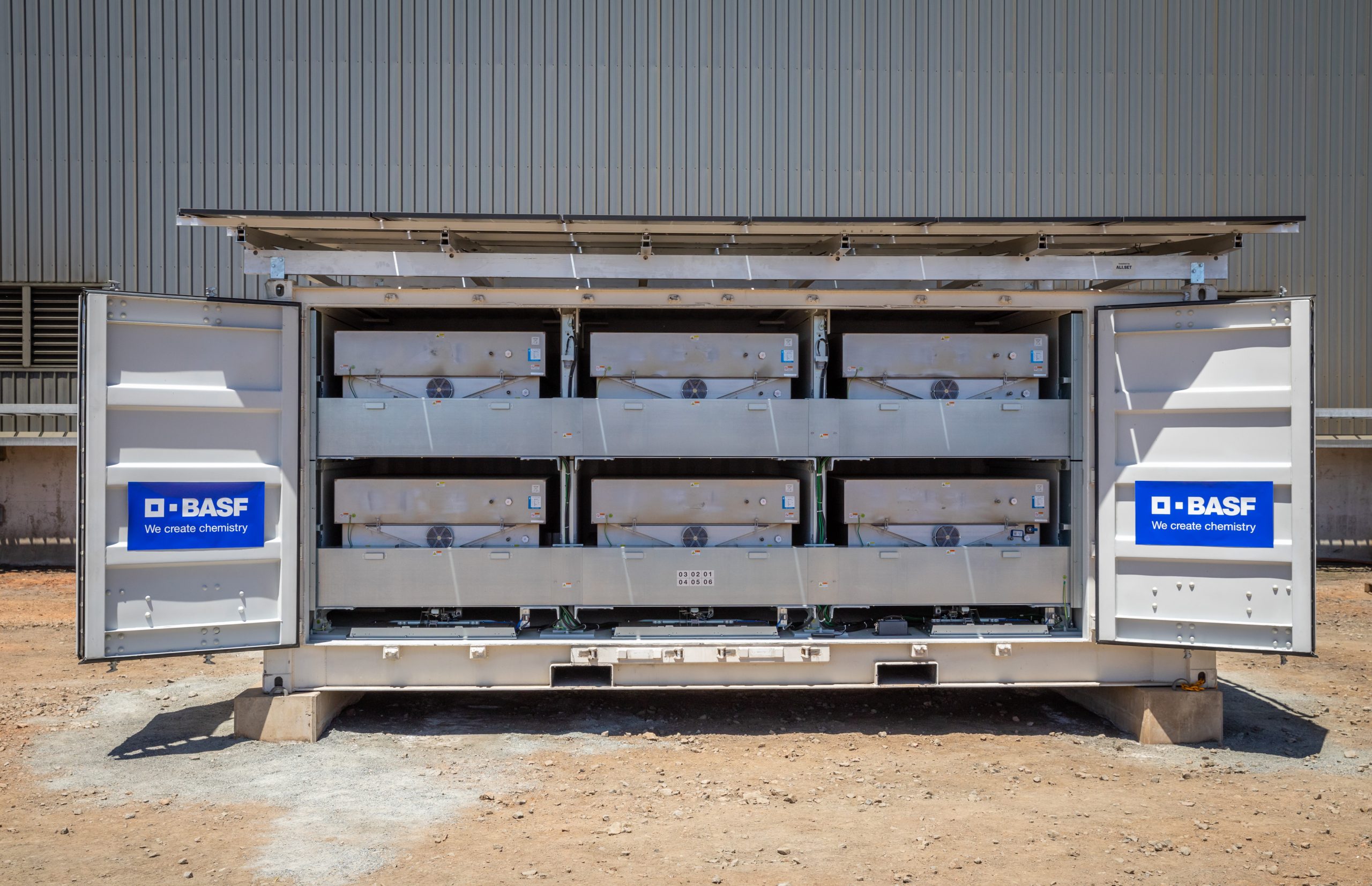The country’s first sodium-sulfur (NAS) battery is up and running at a mine in Western Australia as the industry explores new ways to transition to renewable energy.
The Future Battery Industries Cooperative Research Centre (FBICRC) is behind the installation of the 250 kW/1.45 MWh Battery Energy Storage System (BESS) demonstration unit, which is designed for long-duration storage, at the IGO Nova nickel-copper-cobalt mine site.
German chemicals giant BASF is part of the project, supplying the NAS brand battery, which is charged from solar panels atop the unit.
While it’s an Australian first, FBICRC CEO Shannon O’Rourke pointed out that NAS battery technology is mature and has been successfully installed and operated at over 250 sites worldwide over the past 20 years.
“These field deployments have helped to build market confidence, train the workforce and build capability in the contracting community,” he said.
IGO CEO Matt Dusci said they are focusing on research and development to speed up both his company’s response to climate change along broader industry efforts.
“The BASF NAS battery trial at our Nova Operation is an important way to field test the suitability of this unique technology in a mining environment and how this will contribute to a clean energy future,” he said

NAS batteries. Photo: Supplied
NAS batteries are designed to store energy for a long time, typically 6-8 hours or more.
They have the capability to shift large amounts of energy to periods of low renewable energy generation. This means that when renewable energy sources like wind or solar are not producing enough energy, the NAS batteries can release the stored energy to meet the demand.
In other words, they can help balance the energy supply and demand and ensure that there is a steady and reliable source of energy.
The performance of the battery will be assessed by the QUT-operated National Battery Testing Centre and the University of Western Australia.




















Trending
Daily startup news and insights, delivered to your inbox.